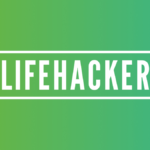Unlocking CIA Insights: Essential Life Hacks from a Former Agent
Each year, approximately $3 billion of taxpayer money is allocated to the operations of the Central Intelligence Agency. While the agency is touted for safeguarding the nation through its intricate espionage operations, one might wonder: what tangible benefits do citizens truly receive in exchange for their investment? The answer isn’t particularly promising—very little.
In pursuit of value for tax contributions—and driven by a curiosity about espionage techniques—insights were sought from former CIA operative Jason Hanson, who graciously shared effective life strategies drawn from his training.
Hanson dedicated seven years to the CIA, operating under a top-secret clearance, before departing in 2005. He subsequently founded the Tactical Spy School in Utah, gained significant funding on Shark Tank, and penned several acclaimed books including Spy Secrets That Can Save Your Life and Agent of Influence: How to Use Spy Skills to Persuade Anyone, Sell Anything, and Build a Successful Business. His goal? To empower everyday Americans to navigate life’s unpredictabilities with greater safety and preparedness.
Disconnect to Stay Connected
Hanson emphasizes the significance of remaining aware of one’s surroundings. While he instructs students at his Spy School on various self-defense methods and escape tactics, his primary guidance resonates with a familiar refrain: prioritizing situational awareness over screen time.
“Awareness is key,” Hanson notes. “Decades ago, we roamed our environments with a focus on our surroundings. I’ve reverted to using a flip phone and have never sent a text.”
Understanding Situational Norms
After setting aside distractions, it’s crucial to evaluate your environment. Hanson isn’t advocating for a heightened state of alertness akin to that of operatives in hostile territories—rather, he champions basic awareness. “Each setting has its own norms,” he clarifies. “Visiting the same coffee shop regularly allows you to recognize what’s typical.”
Taking a moment to gauge a new atmosphere may reveal underlying threats. If something seems off-kilter, trust your intuition; either continue with caution or leave the area. Hanson reflects on a close call: “I once found myself nearly kidnapped in a location I can’t disclose. Two individuals moved toward me, clearly not conforming to the usual crowd—this alerted me. Had I been distracted by a phone, I would have unwittingly walked right into danger.”
Evade Threats
With firsthand experience regarding real threats, Hanson strongly advises against engaging in physical confrontations. “You want to steer clear of fights. If you spot a potential threat, simply walk away,” he warns.
To Carry or Not to Carry
Daily, Hanson carries a firearm, a choice feasible in Utah, given its lenient self-defense laws. For those less inclined to bear arms, he endorses a tactical pen. “I have one on me all the time. It functions as an ordinary pen, but its robust construction allows it to break glass and aid in safety without raising legal concerns.”
Applying CIA Techniques in Professional Settings
The intelligence cultivated by the CIA is equally beneficial in the workplace. Hanson reflects on an insightful remark: “CIA agents are the finest salespeople globally. The distinction lies in what we sell—our motives contrast with those pushing vacuum cleaners.”
His strategies for enhancing workplace dynamics mirror his tips for personal safety: “Be observant, listen, and engage with your surroundings,” he advises. “Taking note of colleagues’ preferences fosters genuine connections and helps one stand out in environments where self-absorption is the norm.”
Detecting Deceit
Determining honesty doesn’t necessitate sophisticated lie detector tools. Hanson provides a straightforward method to enhance one’s perception of truthfulness. The first step involves establishing what constitutes normal behavior for your subject through simple inquiries, followed by a challenging question aimed at testing their response.
When interviewing candidates, for instance, one might begin with benign questions before shifting the tone to: “When was the last time you stole something?” “Pay attention to their reaction in those initial moments,” Hanson instructs. “Truth-tellers don’t hesitate; fabricators often falter or need extra time to concoct a response.”
Outsmarting CIA Tactics
Inquiries regarding Hanson’s legitimacy as a CIA operative might arise. After determining his conversational pattern through preliminary questions, one might boldly challenge him directly: “Are you fabricating your CIA background?”
Instead of faltering under pressure, Hanson commended the query’s significance, acknowledging the difficulty in verifying one’s CIA affiliation. However, he proposed a tangible strategy: coordinating a conversation between the individual and verified CIA personnel can help discern authenticity effectively.
Aspirations of Joining the CIA
For those fantasizing about covert agents making secretive visits following your exemplary Call of Duty scores—a reality check is in order. Most aspiring candidates enlist through the CIA’s official recruitment page. Ensure your background is spotless, as prior legal issues or substance abuse can disqualify potential applicants.












